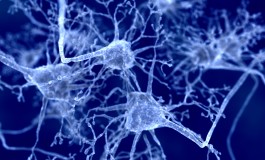July 20, 2015 /
Relapsing Remitting Multiple Sclerosis (RRMS) is defined by repeated attacks of inflammation and flare-ups in patients already diagnosed with multiple sclerosis. The myelin sheath covering neurons in the CNS is attacked by auto-reactive immune cells, which induce massive inflammatory pathways, leading to a varied range of symptoms in patients. However, every attack is targeted at a different spot and symptoms vary in each individual. In MRI scans, it is often seen that patients with RRMS have a greater number of plaques or scars, which are patches of inflammatory cells in a cluster.
Treatment of RRMS
Treating relapsing and remitting forms of Multiple Sclerosis is a combination of cognitive and behavioral therapies, physiotherapy, lifestyle changes and medication. Several pharmaceutical companies have been working on their clinical development plans for the formulation of novel therapies for treatment of this condition. Of the available medications, six are injectable:
- Avonex
- Betaseron
- Copaxone
- Extavia
- Plegridy
- Rebif
Three are oral:
- Aubagio
- Gilenya
- Tecfidera
Three are infused:
Some corticosteroids are also administered in case of relapses, including:
- methylprednisolone (Solu-Medrol)
- dexamethasone (Decadron)
Cognitive and Behavioral Therapies for RRMS
As far as cognitive and behavioral therapies for RRMS are concerned, several studies have compared the effectiveness of cognitive and behavioral therapy programs as compared to emotional therapy, and it showed the former to be more effective in reducing disability, fatigue and depression. This is a form of physiotherapy that deals with cases of anxiety and depression, both of which are consequences of MS. It can be delivered either in groups, via computers or via telephones by experts.
~~~~~~~~~~~~~~~~~~~~~~~~~~~~~~~~~~~~~
.===================================
Visit our MS Learning Channel on YouTube: http://www.youtube.com/msviewsandnews
Stay informed with MS news and information - Sign-up here
For MS patients, caregivers or clinicians, Care to chat about MS? Join Our online COMMUNITY CHAT





